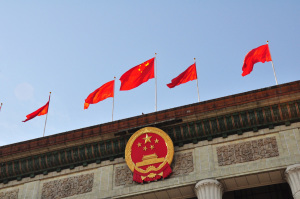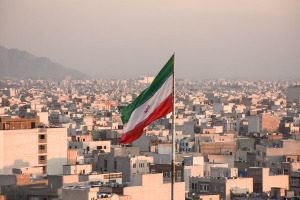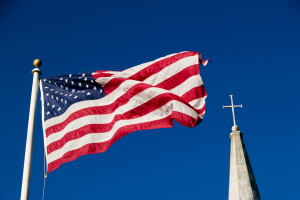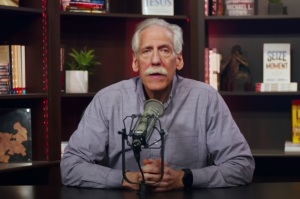Will Pope Francis Raise Awareness of Today's Genocide in the Middle East?
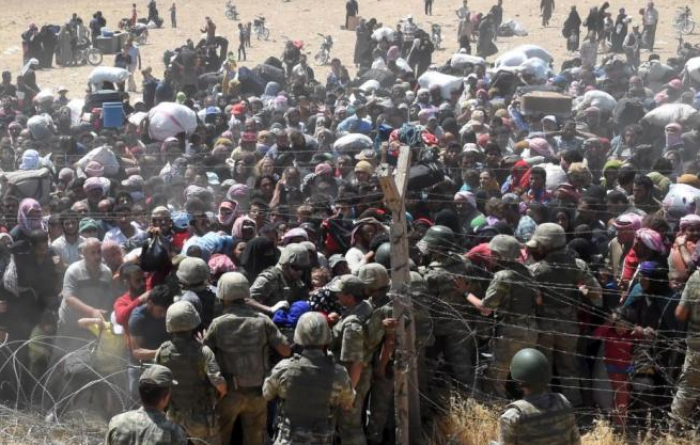
When Pope Francis arrives in the U.S. this week, there are many who hope he will again speak the word that global leaders have been reluctant to speak: Genocide.
In remarks made last June while in Bolivia, the Holy Father proclaimed, "Today we are dismayed to see how the Middle East and elsewhere in the world many of our brothers and sisters are persecuted, tortured and killed for their faith in Jesus … a form of genocide is taking place, and it must end."
It is hard to ignore the horrifying images of the humanitarian crisis gripping northern Iraq and Syria in recent years: families struggling atop Mount Sinjar in a desperate attempt to flee ISIS death squads … ethnic minorities gunned down en mass for refusing to abandon their faith … the wholesale destruction of historical monuments and holy places.
Yet these images are incongruous with our modern sensibilities. Such barbarous accounts are more consistent with the brutality of the Middle Ages. Surely in the enlightened 21st Century we have learned from past mistakes.
After all, when the allies descended upon a defeated Berlin in the spring of 1945, the world drew a collective gasp of horror as the full measure of Nazi death camp atrocities was realized: Six million Jews and five million assorted "undesirables" systematically exterminated, entire families slaughtered, and cultural heritage decimated. How could mass murder of such astounding proportions have been hidden in plain site? Polish-born Jewish lawyer and scholar Raphael Lemkin gave this carnage a name: genocide.
"Generally speaking, genocide does not necessarily mean the immediate destruction of a nation, except when accomplished by mass killings of all members of a nation," wrote Lemkin in his magnum opus, Axis Rule in Occupied Europe.
"It is intended rather to signify a coordinated plan of different actions aiming at the destruction of essential foundations of the life of national groups, with the aim of annihilating the groups themselves. The objectives of such a plan would be the disintegration of the political and social institutions, of culture, language, national feelings, religion, and the economic existence of national groups, and the destruction of the personal security, liberty, health, dignity, and even the lives of the individuals belonging to such groups."
Out of the ashes of the Holocaust, and to international cries of "never again," Lemkin would lead a nascent United Nations in the adoption of the Convention on the Prevention and Punishment of the Crime of Genocide.
Today, more than 130 nations have ratified the Genocide Convention and over 70 nations have incorporated the punishment of genocide into domestic criminal law. Numerous studies have been conducted, data collected, and international conferences convened with the noble aim of preventing genocide.
Yet in the 21st Century, we are still talking about genocide. Or are we?
Since its rise in the summer of 2014, radical jihadists — under the banner of ISIS — have waged a calculated campaign of death and destruction throughout Iraq and Syria. Christians and other ethnic and religious minorities have been beheaded, crucified, raped, tortured, and held captive as sex slaves. Mass graves containing the remains of indigenous Yezidis have been uncovered in multiple locations in northern Iraq. An estimated 2.6 million Iraqis have been forced from their ancestral homes, and in the last decade, Iraq's Christian community has plummeted from approximately 1.5 million to a mere 300,000.
In addition to the human toll, ISIS has decimated the cultural heritage of ethnic and religious minorities in Iraq and Syria. Archaeological sites in the ancient Assyrian cities of Nimrud, Khorsabad and Hatra have been demolished. Priceless antiquities, artifacts, books and rare manuscripts once housed at the Mosul Museum and Mosul Library have been destroyed or defaced, while holy sites, such as the purported tomb of the Old Testament prophet Jonah, have been bulldozed.
Despite the gruesome headlines and grisly statistics, however, the international community has remained hesitant to define the atrocities in Iraq and Syria as genocide.
"If we call it genocide, we really put ourselves in the difficult position of having to do something about it," says Dr. Daniel Mark, assistant professor of political science at Villanova University in Pennsylvania and a member of the United States Commission on International Religious Freedom. "A declaration [of genocide] really points the finger at ourselves and gives us no excuse to look away anymore. We can't pretend we don't know anymore."
To see the burgeoning humanitarian crisis in Iraq and Syria through the lens of genocide is to recognize that current policies are not working. Despite all of our best intentions at prevention, the depraved side of human nature remains.
Something more dramatic needs to happen and quickly. Many would argue that if the international community is not willing to commit to increased military action in the region — to destroy, not merely degrade or contain the ISIS threat — then we cannot, with any legitimacy, claim to be offended by the consequences of our inaction. We can choose to intervene more, or we can continue to operate around the edges and watch the crisis expand.
"The problem is the failure to understand that there are major consequences to decisions to do nothing," says David J. Kramer, Senior Director for Human Rights and Democracy at The McCain Institute for International Leadership. "Lots of people get killed, countries become destabilized, and the environment is open to terrorists/extremists. This is true of the Obama administration, which thinks about the consequences of taking action but fails to think through the consequences of doing nothing, especially when it paints problems around the globe in such stark black-and-white colors."
Indeed, moral outrage in the present carries a certain taint when it follows a lack of collective will to make the hard decisions required to forestall a crisis. Why do we speak of genocide after the fact instead of mounting the courage to confront and put down the threat at its start?
















